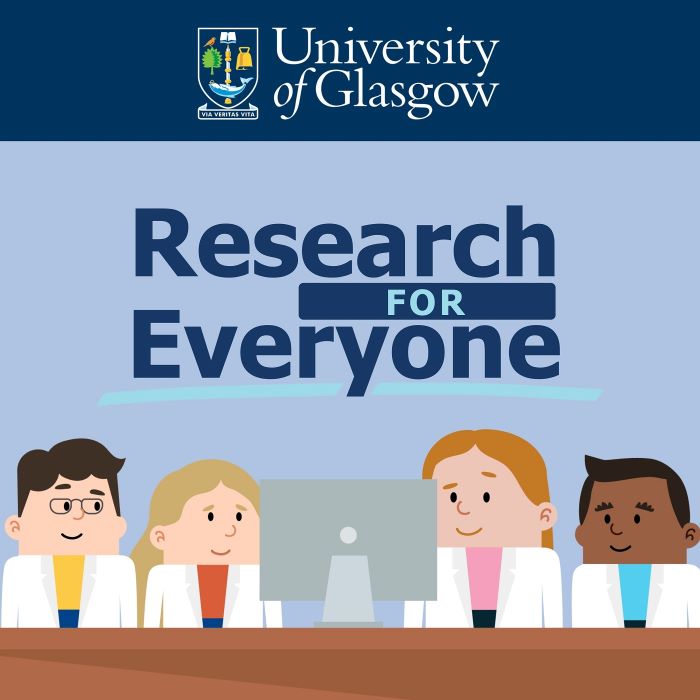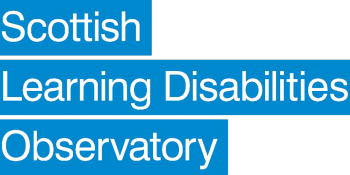New project takes a fresh approach to research communication
Published: 24 October 2023
Even the most complex research findings can and should be made available to everyone, as demonstrated by this new initiative from the Scottish Learning Disabilities Observatory team
Research for Everyone, a new project led by the Scottish Learning Disabilities Observatory (SLDO), brings together adults with learning disabilities and researchers from across the College of Medical, Veterinary and Life Sciences (MVLS) with the aim of making complex health research easier to understand.

The group of six self-advocate co-creators with learning disabilities, along with three third-sector partners – Down’s Syndrome Scotland, People First Scotland and PAMIS (Promoting a More Inclusive Scotland) – have translated two published health studies: one investigating the links between football and dementia, and the other investigating the impact of cancer on mental health.
Together they have produced animations, podcasts and infographics to explain the two studies, demonstrating that even the most complex research findings can be made available to everyone.
The project, supported by Glasgow Knowledge Exchange funding, was conceived by Professor Deborah Cairns, Director of the Scottish Learning Disabilities Observatory:
"We think that everyone has the right to meaningful health information. Our project brings a fresh challenge to the typical academic way of communicating research findings. We chose animations, infographics and podcasts to engage as wide an audience as possible. Some people find it easier to look at images, while others prefer to read or listen. We also created a British Sign Language version of the animations."
Professor Cairns hopes this new approach will be adopted across the academic community, encouraging a more inclusive research culture.
Dr Claire Niedzwiedz, lead author on the cancer and mental health study that has been translated as part of this project, shares this view:
"Too often our research findings are difficult to access and understand. I hope this project leads to more researchers considering the different ways the results of their research can be more helpful to people with different communication needs. Issues around cancer and mental health are likely to affect all of us, across the course of our lives, in some way. It’s only fair that everyone can access and use the latest research."
Natalie, who was one of 6 self-advocate co-creators on the project, believes making health research easier to understand is essential.
"We have the right to understand health information like everybody else, we just have to go about it in a different way. I find it a lot easier to understand and interact with the colours and images used in the animations and infographics, than with the written word, which look like homework. I think more people will connect with these outputs, not just people with different disabilities but also others including children and young people. Less writing, more images is the way to go."
Highlighting the benefits of making research findings easier to understand, Jenny Miller, Chief Executive of PAMIS said:
"Too much money is spent on research that could change lives but because it is inaccessible to so many of us it isn’t used. The Research for Everyone approach is how all research should be shared so we can all take advantage and support the difference that it can make to health and wellbeing, especially of people with a learning disability who continue to face many health inequalities."
Fiona Barlow
Impact and Communications Officer (Scottish Learning Disabilities Observatory)
Don’t forget to share on social media using #ResearchForEveryone23
First published: 24 October 2023


